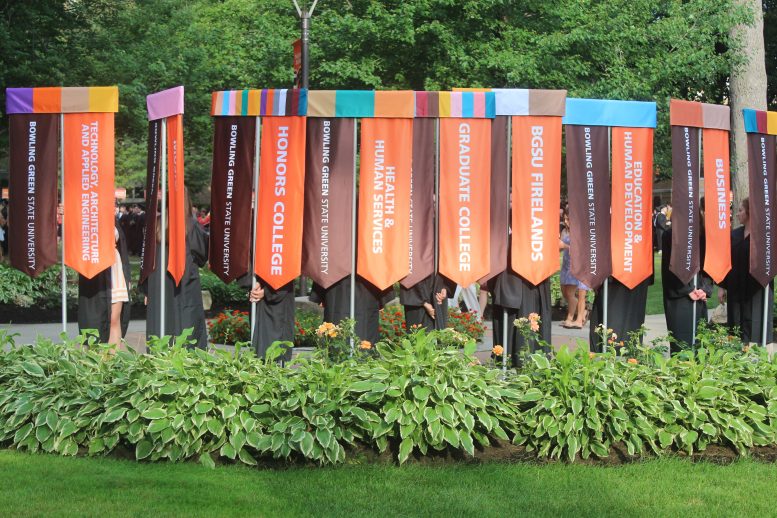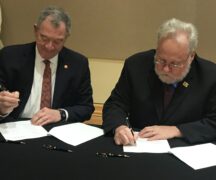By DAVID DUPONT
BG Independent News
The BGSU Board of Trustees at its May meeting approved the university’s latest curriculum moves including the state’s first multi-disciplinary artificial intelligence program as well as the streamlining of existing programs.
The university, trustees learned, are looking at more encouraging enrollment numbers — with more students expected in fall and students staying in school to graduate.
The administration credits this with its development of new academic programs where there is a high demand for graduates.
The new AI + X program fills that bill. “It reflects both academic innovation and market responsiveness, and it empowers students to connect Al with their individual interests and professional ambitions,” the request for approval stated.
The program would allow students to pair advanced studies in AI with one of six other disciplines —Computer Science, History, Journalism, Mathematics, Physics, or Public Relations.
In his report to the trustees interim Provost Glenn Davis noted that a few schools in the nation have similar programs at the graduate level, but not for undergraduates.
The materials presented to the board state: “This structure empowers students to explore how AI intersects with their interests, preparing them to apply emerging technologies in real-world contexts. Additional combinations may be added in the future to meet demand or workforce.”
The demand is great with job postings for AI-related jobs growing at a rate of 3.5-times faster than other sectors, and the Bureau of Labor Statistics reporting a 23-percent job growth.
Davis said they expect this will draw students. There are now 382 students majoring in computer sciences, up 50- since 2022. The AI + X program will accelerate that trend.
The program will not require hiring any new faculty. Davis said over the past few years the university has brought on faculty with expertise in the field. “We actually have significant capacity currently within our computer science department.”
The university is in the process of filling several other open positions with faculty who have background in AI, he said. Indeed, the incoming provost Dr. Ravi Krovi did doctoral work in artificial intelligence.
While the program is being launched with six specializations, there is a possibility of adding others if there is student interest. Davis said they wanted to be “flexible… because this field is changing so rapidly. We didn’t want to overdetermine what it did to look like now.”
The trustees also approved other curricular changes.
Studies in AI will also be incorporated into the new online Masters of Science in Software Engineering.
Davis explained that the 30-credit, two-year program will “prepare students to design, develop, managed software systems, all skills that are increasingly needed across sectors such as healthcare, finance, and manufacturing” as they entail more automation.
The new online degree will replace the in-person master’s in computer science with a software engineering specialization. This will broaden the field of prospective students, Davis said.
The Bachelor of Arts in Environmental Studies with a specialization in Environmental Resilience and Climate Change is a streamlined major that brings together 15 specializations while maintaining academic rigor.
There will be additional focus on experiential learning including co-ops, service-learning, and internships with outside partners such as the Ohio Environmental Protection Agency and the Wood County Solid Waste District.
The reconfiguration of the Schmidthorst College of Business will reduce the number of departments from six to four —Business Analytics, Economics, and Information Systems; Department of Accounting and Finance; Department of Management; and the Department of Marketing. “This streamlined configuration constitutes a more agile academic model that is responsive to student interests, industry developments, and institutional priorities,” according to the request for approval.
The Department of English has also streamlined the English major by reducing required credit hours and simplifying electives to increase enhance flexibility and clarity. It also expands access to internships.
The intent is to make the major more relevant to those pursing careers in education as well as those pursuing careers that demand strong analytical, writing, and digital literacy skills.
Davis noted that the English Department has seen increased enrollment.
The newly created Department of Forensic Science will house the existing undergraduate and graduate majors in forensic science which have been in the Departments of Biological and Chemistry. The materials presented to trustees state that: “This move will provide a clear identity for the program, better support for advising and curriculum planning, and a more streamlined path to maintaining … accreditation.”





